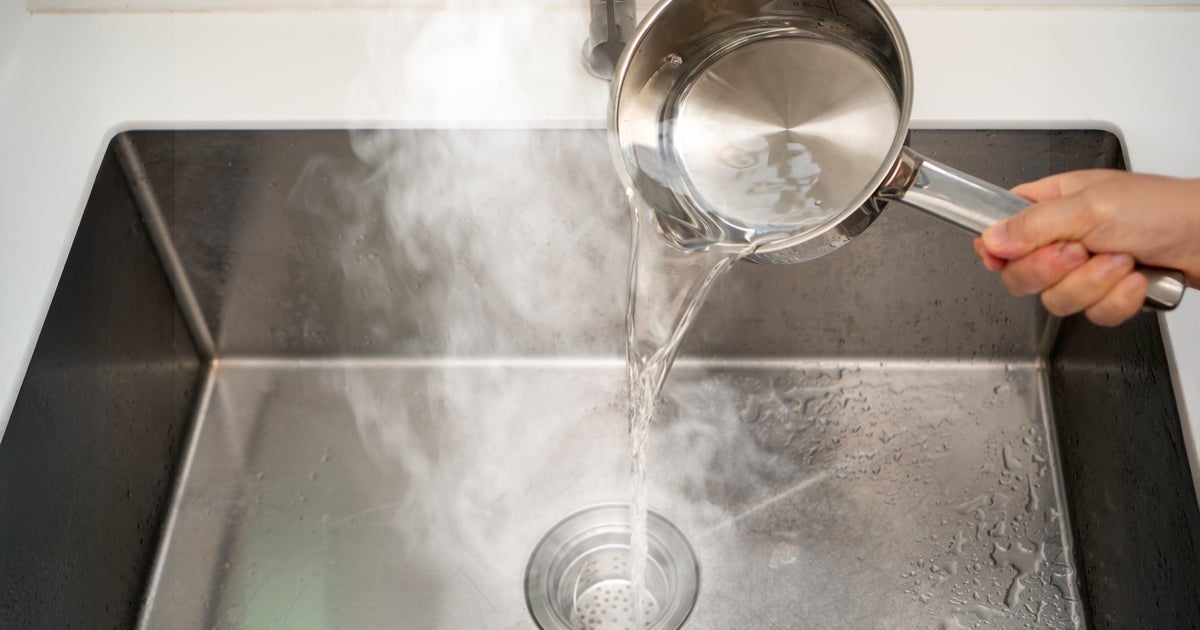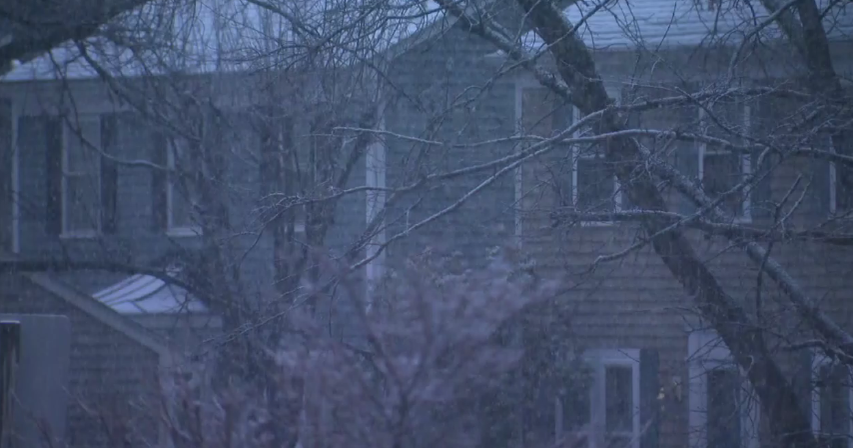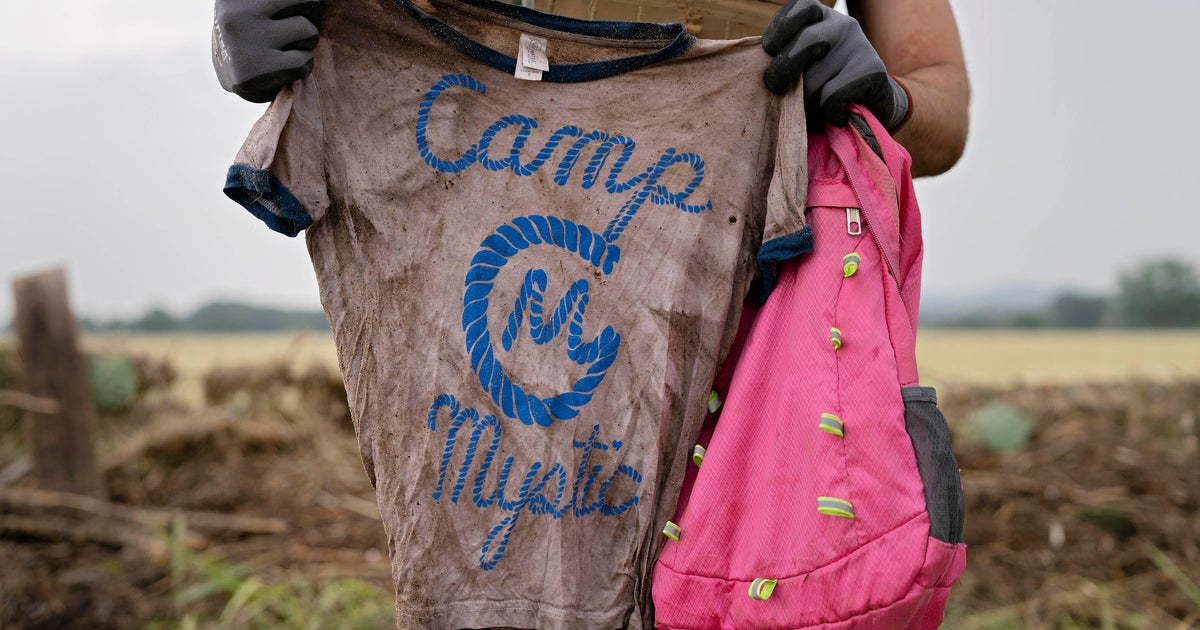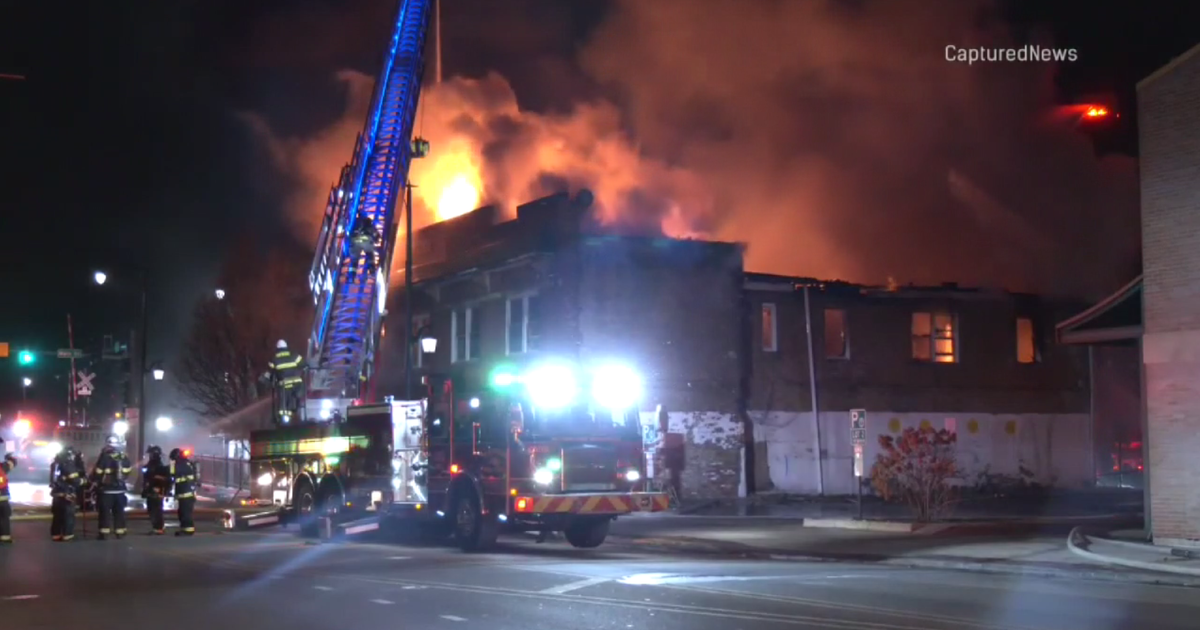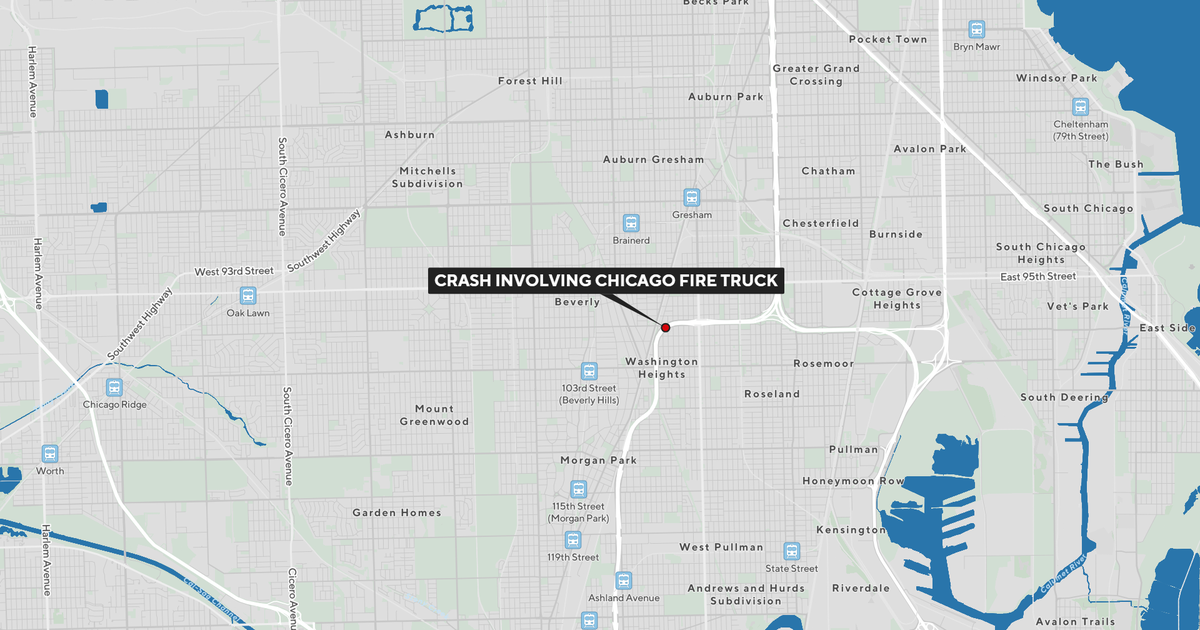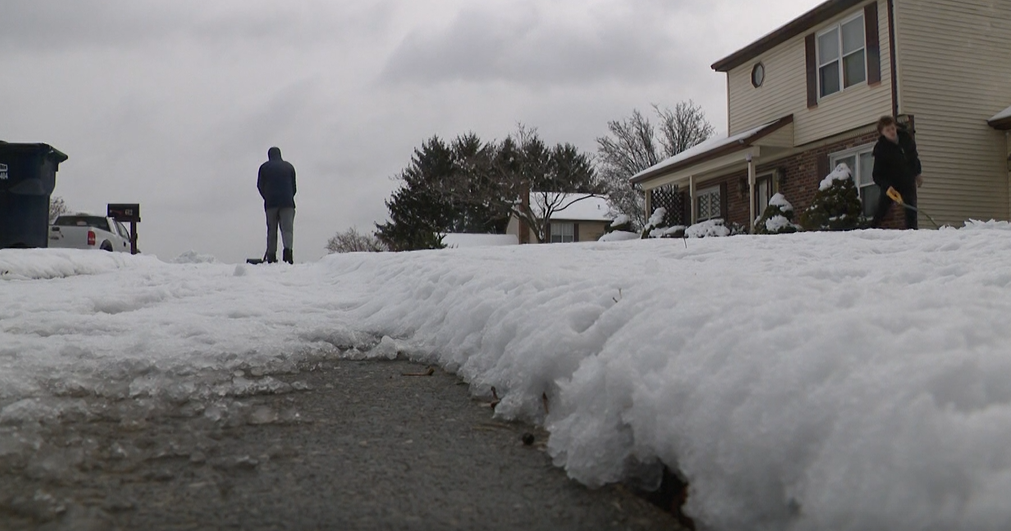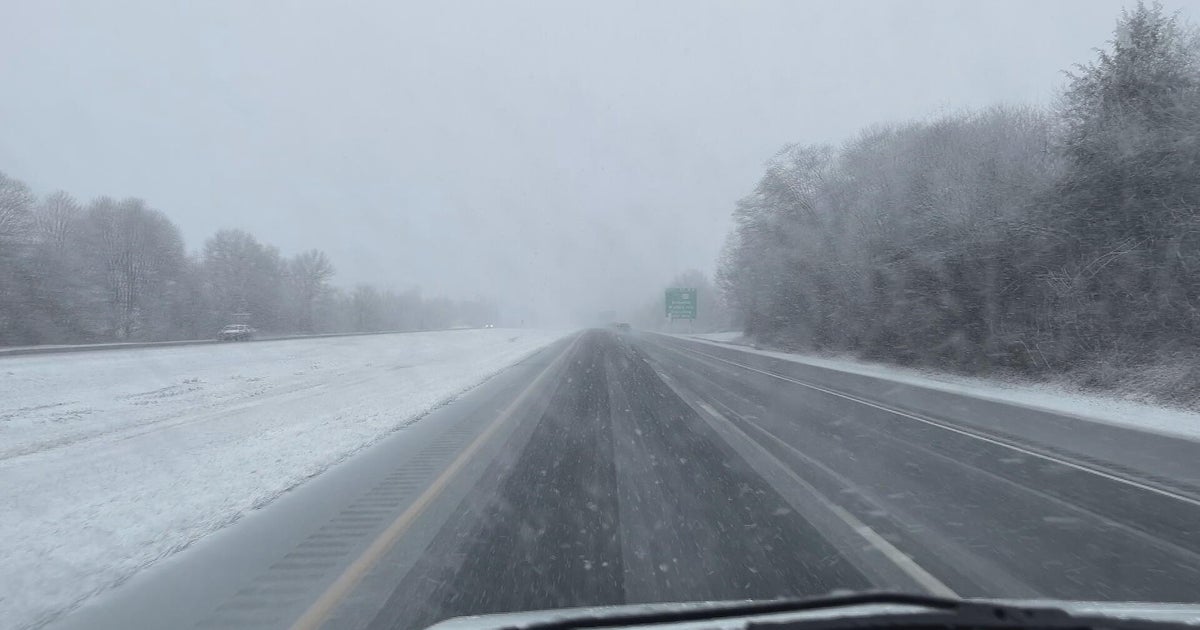Cicero hit particularly hard by Sunday's deluge; some basements got up to 3 feet of water
UPDATE (7/5/2023): The Metropolitan Water Reclamation District provided additional background on the decision to reverse the flow of the Chicago River, explaining they could only do so once the water level in the river rose above that of Lake Michigan.
CICERO, Ill. (CBS) -- All across northern Illinois, people are cleaning up after Sunday's record-breaking rainstorm. Some areas saw up to 9 inches of rain, more than we've seen for the last couple months combined.
One of the hardest hit suburbs was Cicero, where many people have been spending the day Monday clearing water out of their basements and assessing the damage caused by the deluge.
The street outside Anna Simpson's home was covered in so much water, it looked like a river, so she decided to treat it like one.
It's not often you can cast a line off your front porch, a first in her 80 years. With a flooded street canceling the family's actual fishing plan Sunday, she thought: why not?
"If you can't get out and go fishing, might as well just sit on the front porch and you can get a line out," said her son, Mark. "She was hoping she was hoping she was gonna catch a catfish or something from the sewer."
Mark said they haven't seen the kind of rainfall they watched Sunday in the family's more than 50 years in Cicero. They ended up seeing about 3 feet of water in their basement.
A spokesperson for the town of Cicero said they had crews out all day and night monitoring the flooding and keeping sewer covers clear.
Town officials said more than 8 inches of rain 6 hours isn't manageable by a sewer system or water retention district of any size.
While Anna didn't have much luck fishing from her front porch, Mark said they're staying positive, as they clean out the basement and figure out next steps.
"It's just a matter of what are we gonna do with this?" Mark said.
Meantime, Heydy Zarate, who just moved into a basement unit two months ago, said she had water hip deep. Water even managed to upend her washing machine and a clothes dresser.
It also left visible damage on her walls, washing away a recent paint job. She said she'll have to throw out her mattress, computer, and several other possessions.
"I barely lived here almost two years, and have to start over again. You know, college student coming back," she said.
Despite the flooding, she still gave a tour of her apartment with a smile.
"I mean, what can you do about it? Nothing much. Just start over," she said.
Cicero officials are pushing for the area to be declared a disaster area so they can qualify for federal, state, and county funding, but they said that takes time.
Meantime, town spokesman Ray Hanania said Cicero is working directly with residents like Mark to deal with the aftermath:
Flooding from record heavy rains has hit a dozen suburban communities, including Cicero ... Cicero crews were out all day and night during the record rainfall and flooding, ensuring the sewer covers were clear to help expedite the draining of the record and heavy rain. To be clear the record setting rainfall saw over 8" of rain in a six hour timeframe, something not manageable by any size sewer system or retention district.
Cicero homeowners are suffering like all residents and homeowners throughout the southwest region, where the unusually heavy rains caused great problems due to these heavy rains.
The real problem, however, is the Metropolitan Water Reclamation District, MWRD, which only opened its drainage lines very late, again helping Chicago neighborhoods to drain first before opening the locks for suburban communities like Cicero... Cicero has absolutely no control over these locks, which are controlled by the MWRD, which has ONE responsibility to manage rainwater drainage. With a $2 billion-plus budget, they don't do an excellent job for the suburbs.
Over the years, we have demanded that the MWRD change its practices and treat the suburbs equally regarding rainwater drainage ... they have refused. We are asking our state legislators, the county board, and congressional representatives to do something about this recurring problem that has harmed Cicero and our neighboring communities.
Much of the flooding has finally receded, but it would have drained faster had the MWRD treated the suburban communities with the same concern that they treat the city of Chicago and the wealthier Chicago homes and neighborhoods on the north side of the city ... once again, this is about the MWRD putting Chicago needs above the needs of the suburbs and their ignoring the huge taxes suburban residents pay to the MWRD. Cicero has absolutely no control over the MWRD's rainwater drainage system.
Many Cicero homes have installed water backup check valves that stop the water from backing up into their homes. Others with low windows have reinforced their window areas to prevent water from coming through the entire structures, which has always been a common problem. We have urged homes to prepare for water damage by taking some of these steps
We are also working with county and state officials and other suburban communities to have the area again declared a disaster area to qualify for federal, state, and county funding, but that takes time. If the region is approved for financial assistance, the program will be run through Cook County and we will disseminate all of the info we can to the residents to seek out and apply for this financial assistance and relief.
Like many other suburban communities, we want to know when the water reclamation district will finally treat the suburbs as equals with the city and address suburban flooding needs.
We also urge residents to join in demanding that the MWRD does its single job to address rainwater flooding by calling their offices.
A spokesperson for Metropolitan Water Reclamation District said that they can only open the gates and locks to reverse the flow of the Chicago River when the water level on the river rises above the level of Lake Michigan.
When there is an extreme weather event such as what happened July 2 and 3, we must reverse the flow of the Chicago River when the river level exceeds the elevation of Lake Michigan. During this past weekend's storm, the elevation of the North Shore Channel topped the elevation of Lake Michigan, and we opened the gates at 2:16 p.m. on July 2. The gates remained open until 9:47 p.m. on July 2. The elevation of the Chicago River downtown exceeded Lake Michigan's elevation so the locks were opened at 4 p.m. on July 2 and the reversal ended at 2:30 a.m. on July 3. Reversing to the lake only happens in extreme situations.
In other words, when the Chicago area waterway levels are higher than Lake Michigan, only then can the MWRD open control structures to move as much water as possible out of the system. We cannot open the gates and lock before that time. There is NO MAGIC KEY OR BUTTON to use at will. Opening the gates and lock not only provide overbank flooding protection but they allow for more capacity for stormwater. As a result, the MWRD can only reverse the waterway to the lake when the river level is ABOVE Lake Michigan levels. If we were to open the lock and gates too early, Lake Michigan would have a tsunami effect, overtaking the river and flooding everything in its path in downtown Chicago and along the waterways, totally decimating the riverwalk and municipalities downstream, on the South side and on the North side. The destruction that would be caused by opening the gates and lock too early is unimaginable.
According to the National Weather Service, "rainfall totals in and in the immediate vicinity of Chicago ranged from roughly 3 to 7 inches, though a few localized areas received over 8 inches of rainfall. The worst of the flooding occurred on the west and southwest sides of Chicago and in the near west and southwest suburbs." This includes Cicero and Berwyn. There is no system able to handle that much water in just a few hours.
Consistent with the MWRD's mission of protecting Lake Michigan from pollution, every effort is made to minimize the amount of floodwater discharged to the lake during extreme storms. In a combined sewer system like we have here, sanitary sewage and stormwater drain into the same pipes. Homes, businesses and street drains are connected to the local sewers, which are owned and maintained by municipalities. Local sewers flow by gravity into the MWRD intercepting sewers, which then convey the flow to MWRD water reclamation plants for treatment.
To combat this, we have partnerships with municipalities and other organizations throughout the county to fully or partially fund green infrastructure and other stormwater projects to improve resilience within that community. The 34 Space to Grow® green infrastructure projects that convert asphalt into permeable surfaces at local schools is just one example of a partnership improving communities one neighborhood at a time.


